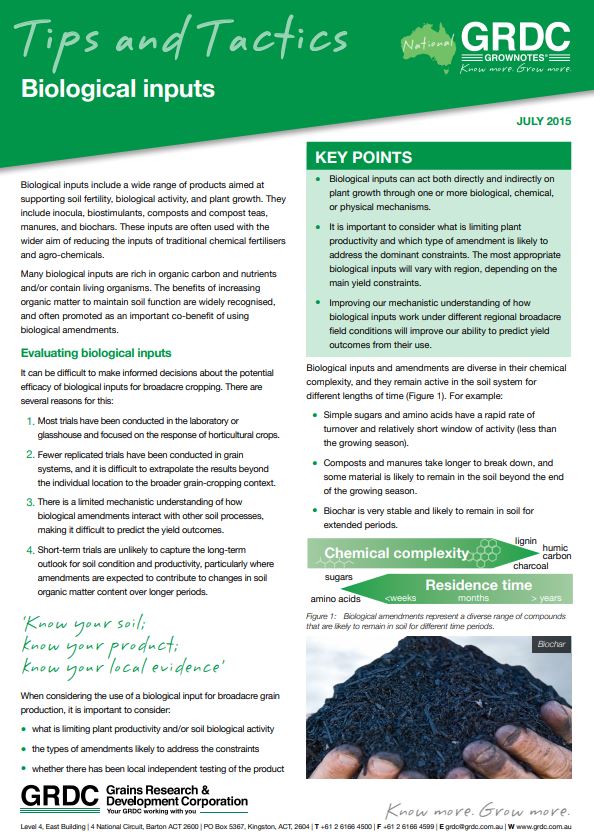Tips and Tactics: Biological inputs
Tips and Tactics: Biological inputs
Published: 01 Jul 2015
Biological inputs include a wide range of products aimed at supporting soil fertility, biological activity, and plant growth. They include inocula, biostimulants, composts and compost teas, manures, and biochars. These inputs are often used with the wider aim of reducing the inputs of traditional chemical fertilisers and agro-chemicals.
Many biological inputs are rich in organic carbon and nutrients and/or contain living organisms. The benefits of increasing organic matter to maintain soil function are widely recognised, and often promoted as an important co-benefit of using biological amendments.
Key Points
- Biological inputs can act both directly and indirectly on plant growth through one or more biological, chemical, or physical mechanisms.
- It is important to consider what is limiting plant productivity and which type of amendment is likely to address the dominant constraints. The most appropriate biological inputs will vary with region, depending on the main yield constraints.
- Improving our mechanistic understanding of how biological inputs work under different regional broadacre field conditions will improve our ability to predict yield outcomes from their use.
Download PDF
Region: National

